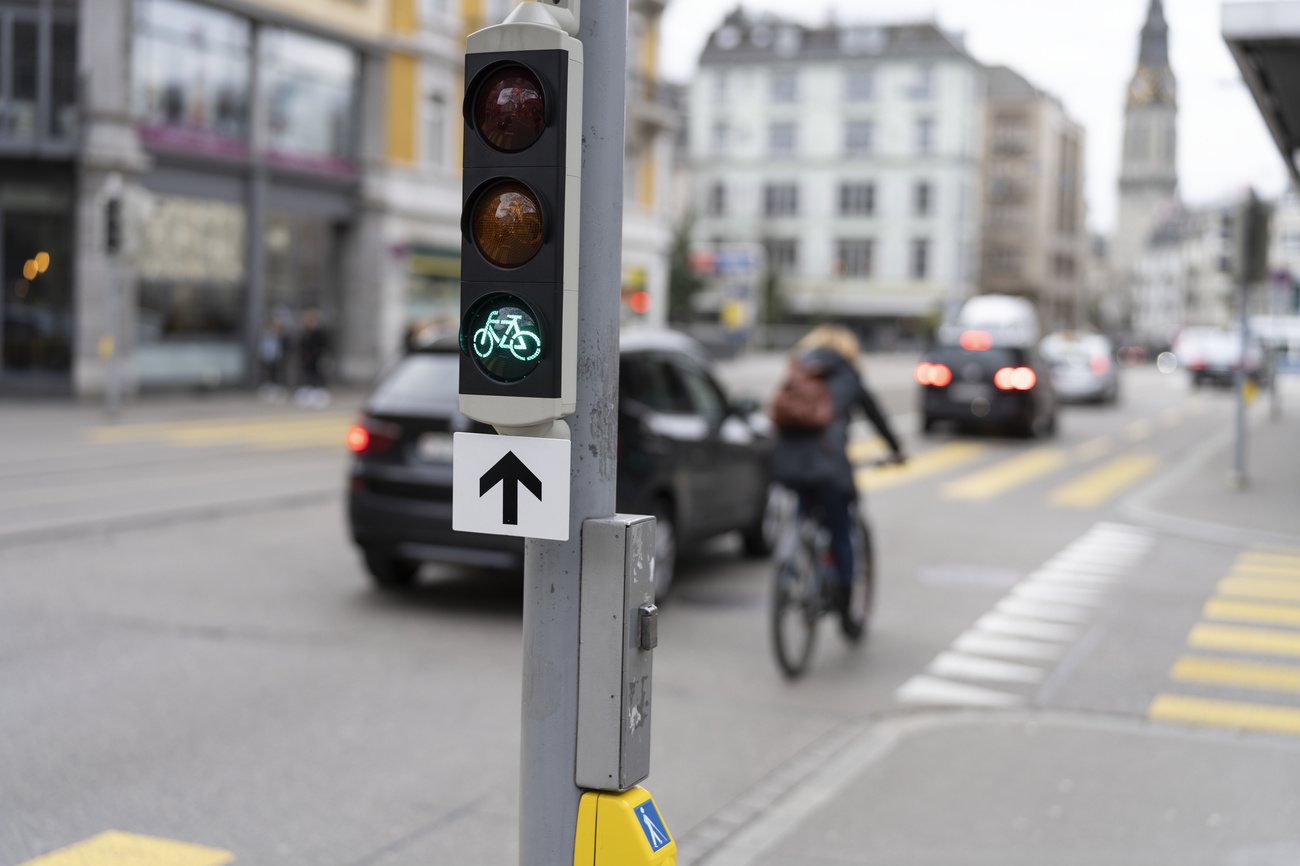
Swiss demand more sustainability from companies and the state

More than half of Swiss residents are demanding more sustainability from companies and the state. But consumers should also exert more influence.
This is the conclusion of a study published on Monday by the consulting firm Deloitte which surveyed 1,900 people living in Switzerland. The study claims to be representative.
Overall, two-thirds of respondents believe that companies have a duty to make the country more sustainable; 61% see the state and 53% see themselves as consumers as having a responsibility.
According to Liza Engel, head of sustainability at Deloitte Switzerland, this leads to a dilemma. “Consumers are waiting for companies and the government to act, while companies and the government are waiting for consumer demand to drive change.”
It is less clear what measures respondents expect companies to take. Most think companies should use more environmentally friendly materials (57%), emit fewer greenhouse gases (51%) and offer more sustainable products (51%).
Around half of respondents support government subsidies for more environmentally friendly and sustainable behaviour. For example, a tax deduction for bicycle commuters or subsidies for vegan food. In French-speaking Switzerland, subsidies are more popular overall than the national average.
Respondents also support investments in research (46%) and in education and awareness-raising (42%) for sustainable behaviour. Respondents showed little support for additional regulation for companies and consumers (29%) and the taxation of less sustainable products (27%).
Around three-quarters of respondents also stated that they wanted to make their behaviour more sustainable in the next 12 months – especially young people and city dwellers.
When it comes to food, 57% want to become more sustainable, for example by eating less meat. Around half of those surveyed want to make their consumption more environmentally friendly by consuming fewer goods and services; 48% want to save energy and water.
Adapted from German by DeepL/dkk/ts
This news story has been written and carefully fact-checked by an external editorial team. At SWI swissinfo.ch we select the most relevant news for an international audience and use automatic translation tools such as DeepL to translate it into English. Providing you with automatically translated news gives us the time to write more in-depth articles.
If you want to know more about how we work, have a look here, and if you have feedback on this news story please write to english@swissinfo.ch.

In compliance with the JTI standards
More: SWI swissinfo.ch certified by the Journalism Trust Initiative





























You can find an overview of ongoing debates with our journalists here . Please join us!
If you want to start a conversation about a topic raised in this article or want to report factual errors, email us at english@swissinfo.ch.